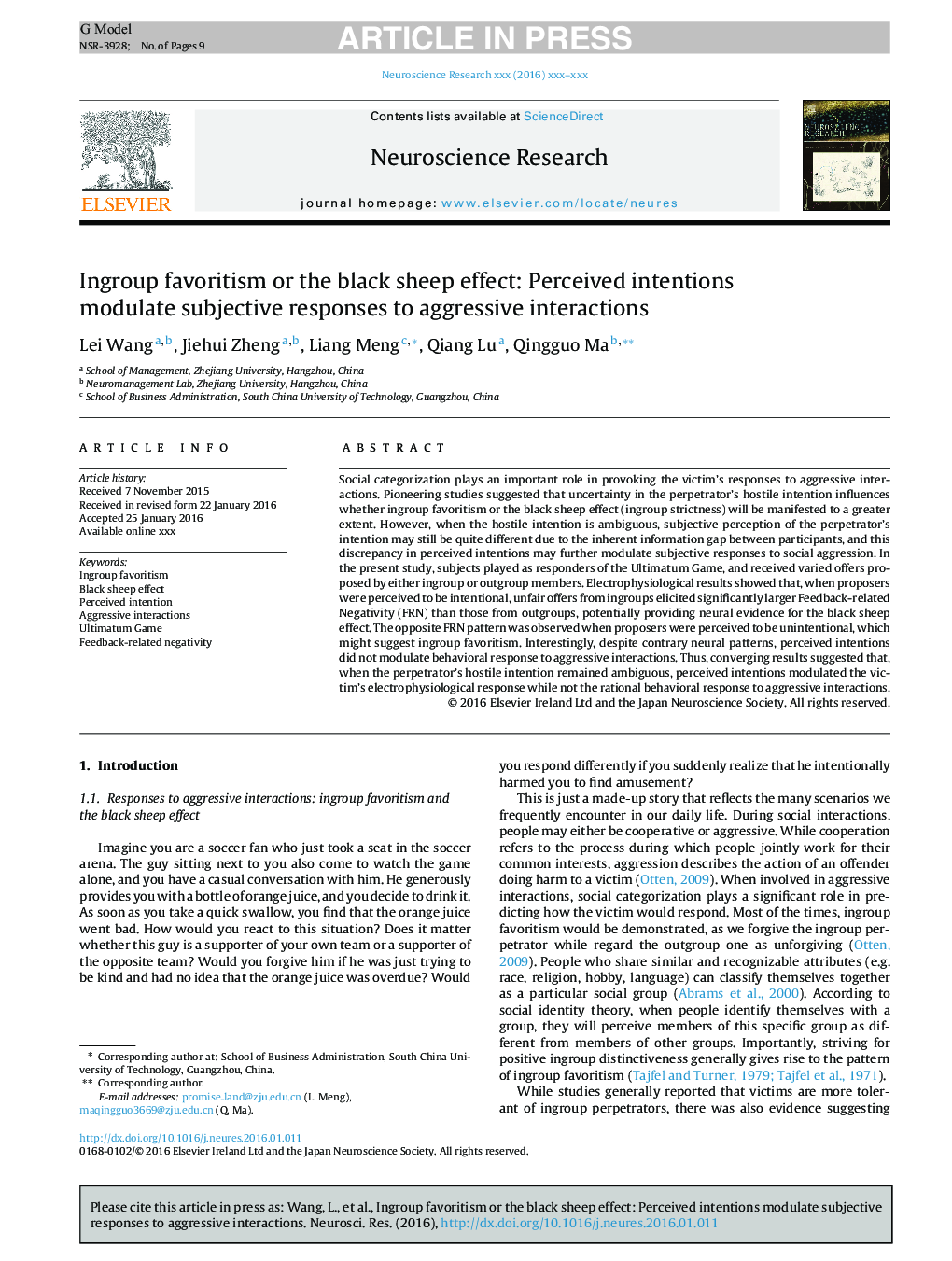| کد مقاله | کد نشریه | سال انتشار | مقاله انگلیسی | نسخه تمام متن |
|---|---|---|---|---|
| 6285993 | 1615275 | 2016 | 9 صفحه PDF | دانلود رایگان |
عنوان انگلیسی مقاله ISI
Ingroup favoritism or the black sheep effect: Perceived intentions modulate subjective responses to aggressive interactions
ترجمه فارسی عنوان
فانتزی سازی درون گروهی یا اثر سیاه پوست سیاه: نیت های درک شده، واکنش های ذهنی را به تعاملات تهاجمی
دانلود مقاله + سفارش ترجمه
دانلود مقاله ISI انگلیسی
رایگان برای ایرانیان
کلمات کلیدی
فانتزی درون گروهی، اثر گوسفند سیاه، قصد درک، تعاملات تهاجمی، بازی اولتیماتوم، منفی مربوط به بازخورد،
موضوعات مرتبط
علوم زیستی و بیوفناوری
علم عصب شناسی
علوم اعصاب (عمومی)
چکیده انگلیسی
Social categorization plays an important role in provoking the victim's responses to aggressive interactions. Pioneering studies suggested that uncertainty in the perpetrator's hostile intention influences whether ingroup favoritism or the black sheep effect (ingroup strictness) will be manifested to a greater extent. However, when the hostile intention is ambiguous, subjective perception of the perpetrator's intention may still be quite different due to the inherent information gap between participants, and this discrepancy in perceived intentions may further modulate subjective responses to social aggression. In the present study, subjects played as responders of the Ultimatum Game, and received varied offers proposed by either ingroup or outgroup members. Electrophysiological results showed that, when proposers were perceived to be intentional, unfair offers from ingroups elicited significantly larger Feedback-related Negativity (FRN) than those from outgroups, potentially providing neural evidence for the black sheep effect. The opposite FRN pattern was observed when proposers were perceived to be unintentional, which might suggest ingroup favoritism. Interestingly, despite contrary neural patterns, perceived intentions did not modulate behavioral response to aggressive interactions. Thus, converging results suggested that, when the perpetrator's hostile intention remained ambiguous, perceived intentions modulated the victim's electrophysiological response while not the rational behavioral response to aggressive interactions.
ناشر
Database: Elsevier - ScienceDirect (ساینس دایرکت)
Journal: Neuroscience Research - Volume 108, July 2016, Pages 46-54
Journal: Neuroscience Research - Volume 108, July 2016, Pages 46-54
نویسندگان
Lei Wang, Jiehui Zheng, Liang Meng, Qiang Lu, Qingguo Ma,
